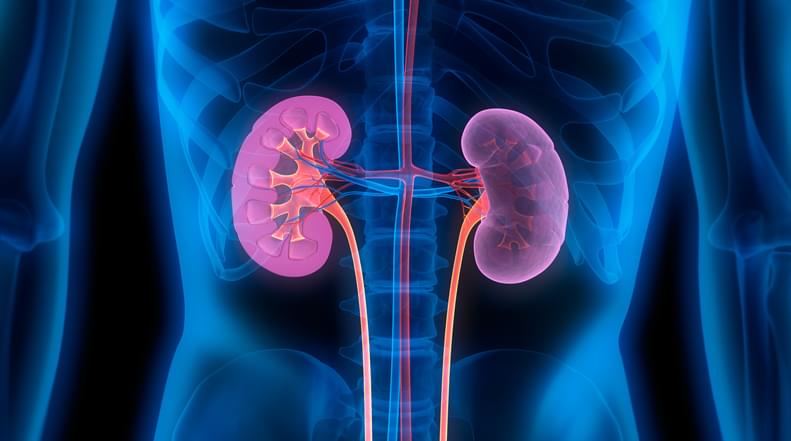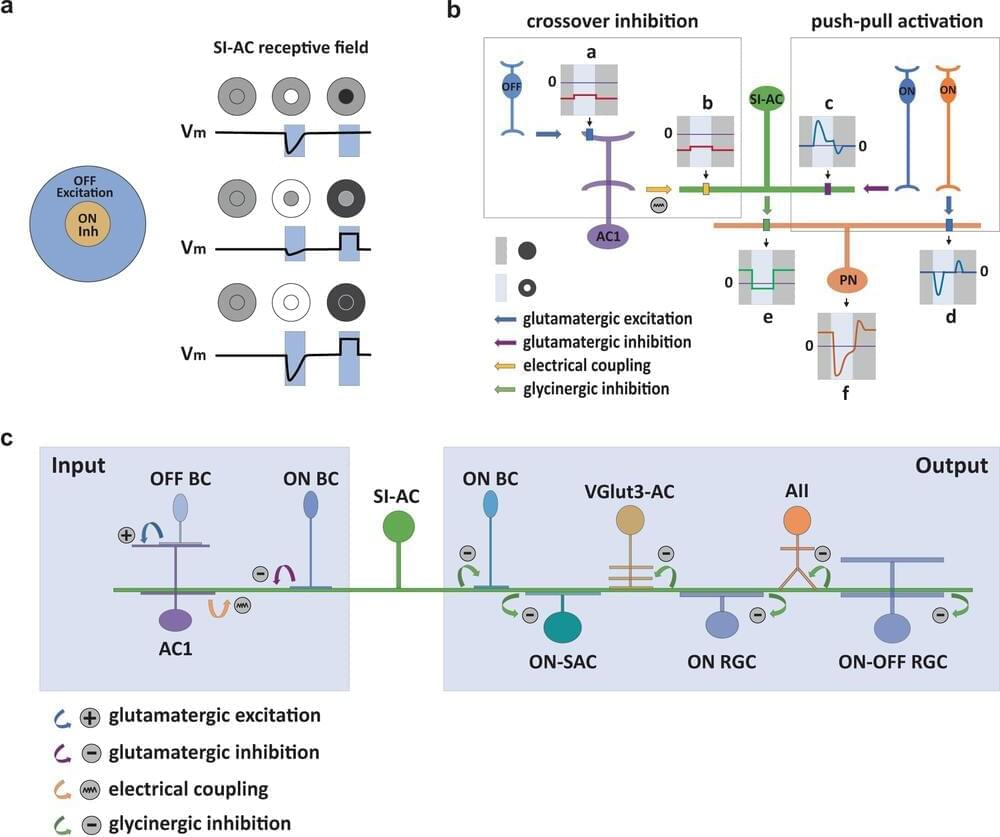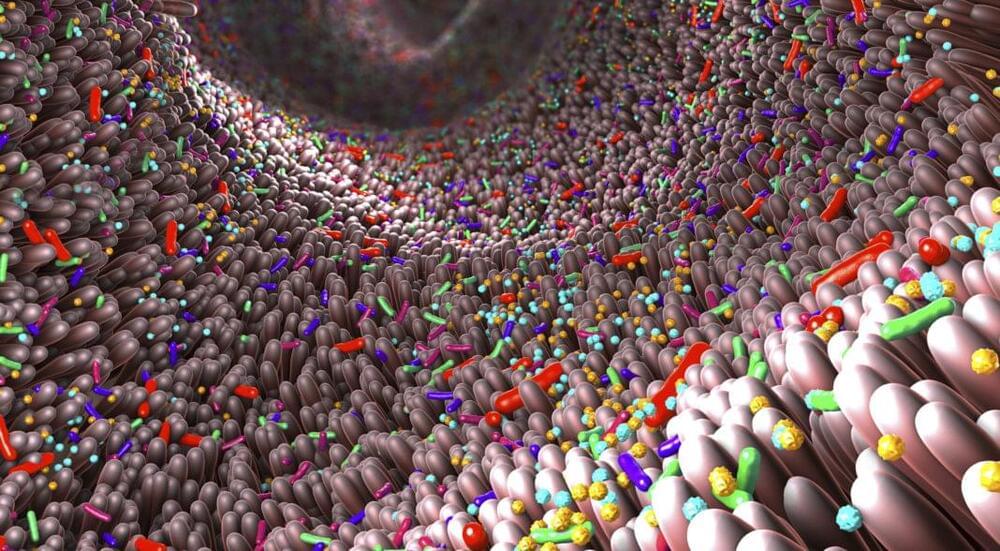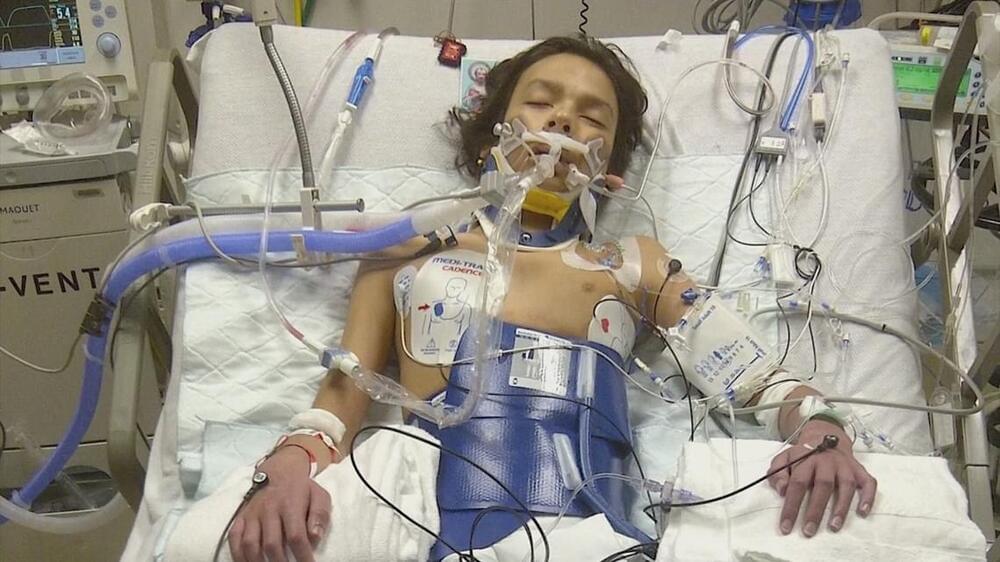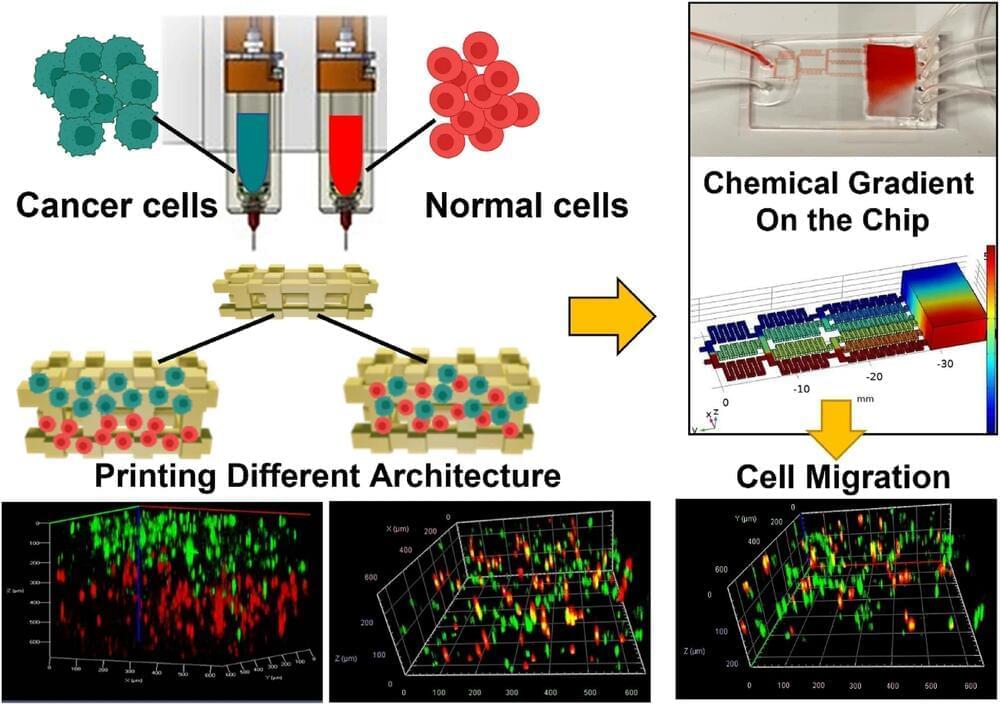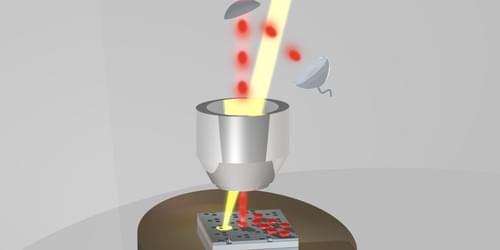Archive for the ‘biotech/medical’ category: Page 489
Oct 23, 2023
Potential Therapeutic Treatment for Kidney Failure in Children Discovered
Posted by Shubham Ghosh Roy in category: biotech/medical
An international team of researchers led by the University of Bristol report they have discovered a potential treatment for the world’s leading cause of kidney failure in children needing dialysis.
The findings are published in Med in an article titled, “Shiga toxin targets the podocyte causing hemolytic uremic syndrome through endothelial complement activation.”
“The most common cause of kidney failure in children is due to toxin-producing bacteria that enter the circulation through the gut resulting in a disease called hemolytic uremic syndrome (HUS),” wrote the researchers. “This commonly requires kidney dialysis, with approximately 5% of children developing life-long kidney failure or dying. It has been unclear why this toxin has a predilection for the kidney and what its mechanism of action is. This study shows the kidney podocyte cell is an important target of the toxin and signals to blood vessels through cellular crosstalk, causing complement activation and HUS.”
Oct 23, 2023
VR’s Healthcare Revolution: Transforming Medical Training at CHLA
Posted by Shubham Ghosh Roy in categories: biotech/medical, education, virtual reality
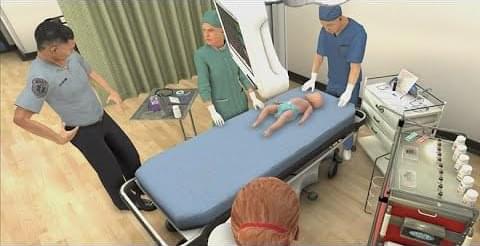
Recently, we partnered with Children’s Hospital Los Angeles (CHLA) to build a VR simulation that places medical students and staff in rare yet high-risk pediatric trauma situations where split-second decisions determine whether a patient lives or dies. Thanks to the immersive power of VR, we can replicate these training scenarios in true-to-life fashion, complete with paramedics rattling off symptoms, nurses and techs urging you to make a decision, and distraught parents praying for their child’s survival.
These visceral, interactive exercises up the stakes compared to traditional educational tools like non-VR simulations and mannequins. Powered by AiSolve and brought to life by the Hollywood VFX magic of BioflightVR, these virtual scenarios based on actual CHLA case studies let doctors and students practice and learn in realistic workplace conditions. Not only does this new innovation stand to significantly reduce the time and cost associated with mannequin-based training, it also better prepares people to respond in the real world.
Continue reading “VR’s Healthcare Revolution: Transforming Medical Training at CHLA” »
Oct 23, 2023
Lung cancer cells covertly thrive in brain under guise of protection, Stanford Medicine study finds
Posted by Shubham Ghosh Roy in categories: biotech/medical, neuroscience
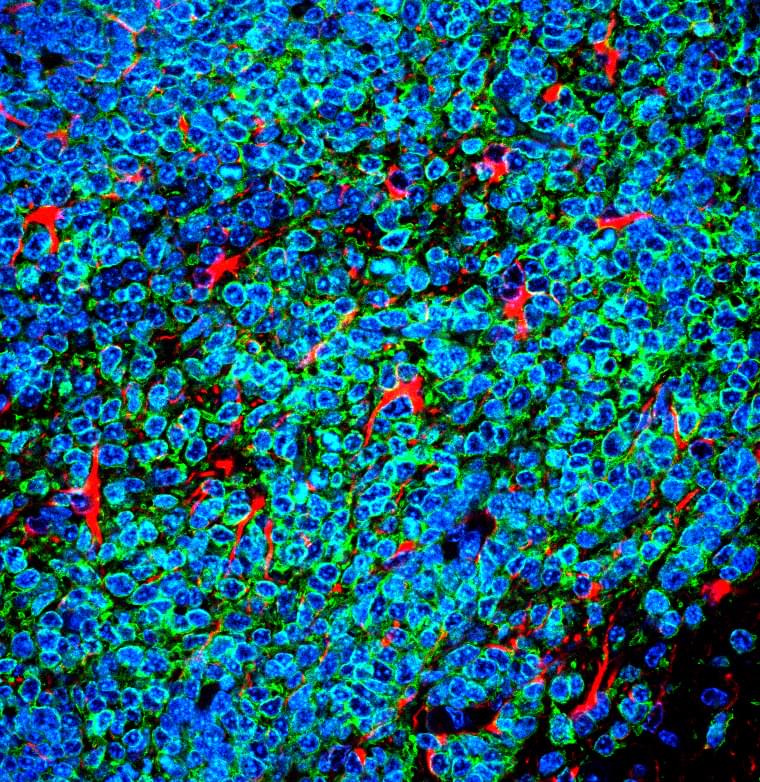
Small cell lung cancers often metastasize to the brain. A Stanford Medicine study shows they thrive there by emulating developing neurons and recruiting surrounding cells for protection.
Oct 23, 2023
Study discovers new subset of retinal neurons impacting vision
Posted by Genevieve Klien in categories: biotech/medical, neuroscience
Investigators have discovered a new subtype of interneurons in the retina that allows the eye to see and identify objects better in both the light and in the dark, according to a Northwestern Medicine study published in Nature Communications.
The findings dismantle previous notions about the inner workings of the eye and also have broader implications for informing future neuroscience research, according to Yongling Zhu, Ph.D., assistant professor of Ophthalmology, of Neuroscience and senior author of the study.
In a mammalian eye, the retina converts light into electrical signals that the optic nerve then sends to the brain, enabling vision. Before being transmitted to the brain, the electrical signals are processed in a dense, synaptic layer within the retina, which is divided into two halves.
Oct 23, 2023
Diabetes: AI and 10-second voice recording may aid diagnosis
Posted by Genevieve Klien in categories: biotech/medical, robotics/AI
Currently, the most common and accurate methods for diagnosing type 2 diabetes involve blood work. A new study, however, asserts that type 2 diabetes can now be diagnosed based on the sound of a person’s voice.
Researchers from Klick Applied Science have developed a tool they say can diagnose type 2 diabetes in women and men, respectively, with up to 0.89 and 0.86 accuracy.
To achieve this, the researchers used an ensemble model that also factored in women’s body mass index (BMI) and men’s age and BMI.
Oct 23, 2023
Microbial Cross-Feeding Scores Uncover Interactions That Influence Gut Health
Posted by Shubham Ghosh Roy in categories: biotech/medical, computing, health
An international research team led by scientists at the Hudson Institute of Medical Research has found a way to determine which species of gut microbiota are important in certain diseases, and how they interact with other microorganisms to create a healthy microbiome.
The team developed a computational metabolite exchange scoring system to identify microbial cross feeding relationships—the use of metabolites produced by one microorganism as an essential nutrients by another—and how these may be altered in disease. The researchers suggest that understanding such relationships could point to therapeutic approaches for a range of disorders including inflammatory bowel disease, infections, autoimmune diseases and cancer.
“There are roughly 1,000 different bacterial species in a healthy gut—it’s a microscopic multicultural community with over a trillion individual members,” said research lead Samuel Forster, PhD. “Bacteria in our microbiomes exist as communities that rely on each other to produce and share key nutrients between them … We have developed a new computational way to understand these dependencies and their role in shaping our microbiome. This new method unlocks our understanding of the gut microbiome and provides a foundation for new treatment options that selectively remodel microbial communities.”
Oct 23, 2023
Cardiac arrest cases in young athletes
Posted by Shubham Ghosh Roy in category: biotech/medical
Pediatric cardiologist Mohammed Numan, MD, recently appeared on KHOU-11 to talk about sudden cardiac arrest in adolescents when playing sports. He shares signs that parents and teachers should be aware of and what tools and training they should have.
Watch Numan’s segment to learn more.
Although it’s rare, doctors at UT Physicians want parents and teachers to know when a student-athlete has a sudden cardiac arrest.
Oct 22, 2023
New 3D-printed tumor model enables faster, less expensive and less painful cancer treatment
Posted by Saúl Morales Rodriguéz in categories: bioprinting, biotech/medical, computing, mathematics
An international team of interdisciplinary researchers has successfully created a method for better 3D modeling of complex cancers. The University of Waterloo-based team combined cutting-edge bioprinting techniques with synthetic structures or microfluidic chips. The method will help lab researchers more accurately understand heterogeneous tumors: tumors with more than one kind of cancer cell, often dispersed in unpredictable patterns.
The research, “Controlled tumor heterogeneity in a co-culture system by 3D bio-printed tumor-on-chip model,” appears in Scientific Reports.
Traditionally, medical practitioners would biopsy a patient’s tumor, extract cells, and then grow them in flat petri dishes in a lab. “For 50 years, this was how biologists understood tumors,” said Nafiseh Moghimi, an applied mathematics post-doctoral researcher and the lead author of the study. “But a decade ago, repeated treatment failures in human trials made scientists realize that a 2D model does not capture the real tumor structure inside the body.”
Oct 22, 2023
Molecular Thermometer Works Near Absolute Zero
Posted by Saúl Morales Rodriguéz in categories: biotech/medical, nanotechnology
A new thermometer allows thermal mapping of surfaces with microscale resolution and enables studies of heat flow through materials at cryogenic temperatures.
To study tiny systems such as microelectronic components, researchers would like to map cryogenic temperatures of structures at the nanoscale. But current techniques involve some heating that can spoil the measurements. Now a research team has demonstrated a cryogenic thermometer that provides microscale resolution and that has little effect on the temperature of the system being measured [1]. Single molecules embedded in tiny crystals are the sensors, and they have millikelvin sensitivity. The team says that the technique could be useful for a wide range of cryogenic studies of the thermal properties of surfaces having nanoscale structures.
Understanding and controlling heat flow through materials is essential for developing a wide range of technologies. For example, researchers have begun to use two-dimensional materials, such as graphene, cooled to cryogenic temperatures, to conduct heat away from hot spots in microelectronic devices. In these materials and at these low temperatures, heat can travel long distances without dissipation, which makes these materials extremely effective heat conductors. However, the precise mechanisms for this heat transport are still poorly understood. More generally, researchers would also like to better understand other anomalous thermal properties of materials that apply at these temperatures, such as a regime where heat flows as waves.

